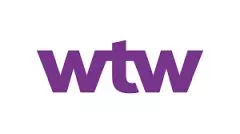Organisations should maintain robust infection control, including response plans, comprehensive policies, risk assessments and effective measures.
As the impact of COVID-19 diminishes, it is natural to feel the urge to ease up on our infection control measures. However, during the winter season, the threat from viruses remains significant, especially for those without strong infection control measures. According to one of the latest articles from the Institution of Occupational Safety and Health (IOSH) Magazine, UK employers are advised to develop emergency response plans for monkeypox.
Organisations must maintain a robust infection control system
Organisations must maintain a robust infection control system as we navigate through the ongoing challenges posed by infectious viruses. This involves crafting a comprehensive policy statement focused on preventing the spread of infections, conducting thorough risk assessments and implementing effective control measures.
Epidemic preparedness: A business imperative
While the pandemic risk has decreased, being prepared for epidemics is crucial for protecting both individuals and your organisation's financial health. Since viruses spread by droplets are mainly spread through close contact, maintaining strict hygiene protocols and preventive measures is essential, particularly in high-contact environments like healthcare settings. This comprehensive approach is about crisis management and building a resilient framework that ensures safety and continuity in the face of infection threats.
Key considerations you need to address when preparing for infection control
- Employee health: Workplaces, especially those involving close physical interactions, are at heightened risk of virus transmission.
- Workplace transmission: An outbreak within a workplace necessitates strict hygiene protocols and comprehensive deep cleaning measures.
- Business continuity: Outbreaks can disrupt business operations. Organisations should integrate flexible and remote working strategies and robust supply chain management into their contingency plans.
- Regulatory compliance: Businesses must adhere to health and safety guidelines and implement appropriate infection control measures.
- Liability: Employers are legally obligated to take all reasonable steps to prevent workplace-related illnesses.
- Increased costs: Managing an outbreak can lead to additional expenses, including deep cleaning, legal fees, and costs associated with employee absences.
- Public perception: How a business handles an outbreak can significantly impact its reputation.
Checklist: Are your infection control measures enough to mitigate risk?
Asking a series of key questions can help your organisation determine whether your infection control measures are sufficient and appropriate:
- Health and safety protocols: Are your infection control risk assessments dynamic and up to date with specified control measures?
- Vaccination encouragement: How effectively are you promoting vaccinations in line with government guidelines?
- Remote working and flexibility: Are you ready to facilitate remote working and flexible schedules to address workplace access issues at a moment's notice?
- Employee education: How well are your employees informed about infection control protocols, virus symptoms, and transmission, along with clear reporting procedures?
- Contingency planning: Is your infection control contingency plan comprehensive and integrated into your existing business continuity planning?
By proactively addressing these considerations, businesses can better navigate the complexities of infection control, ensuring operational resilience and safeguarding their workforce and reputation.
The content of this article is intended to provide a general guide to the subject matter. Specialist advice should be sought about your specific circumstances.


